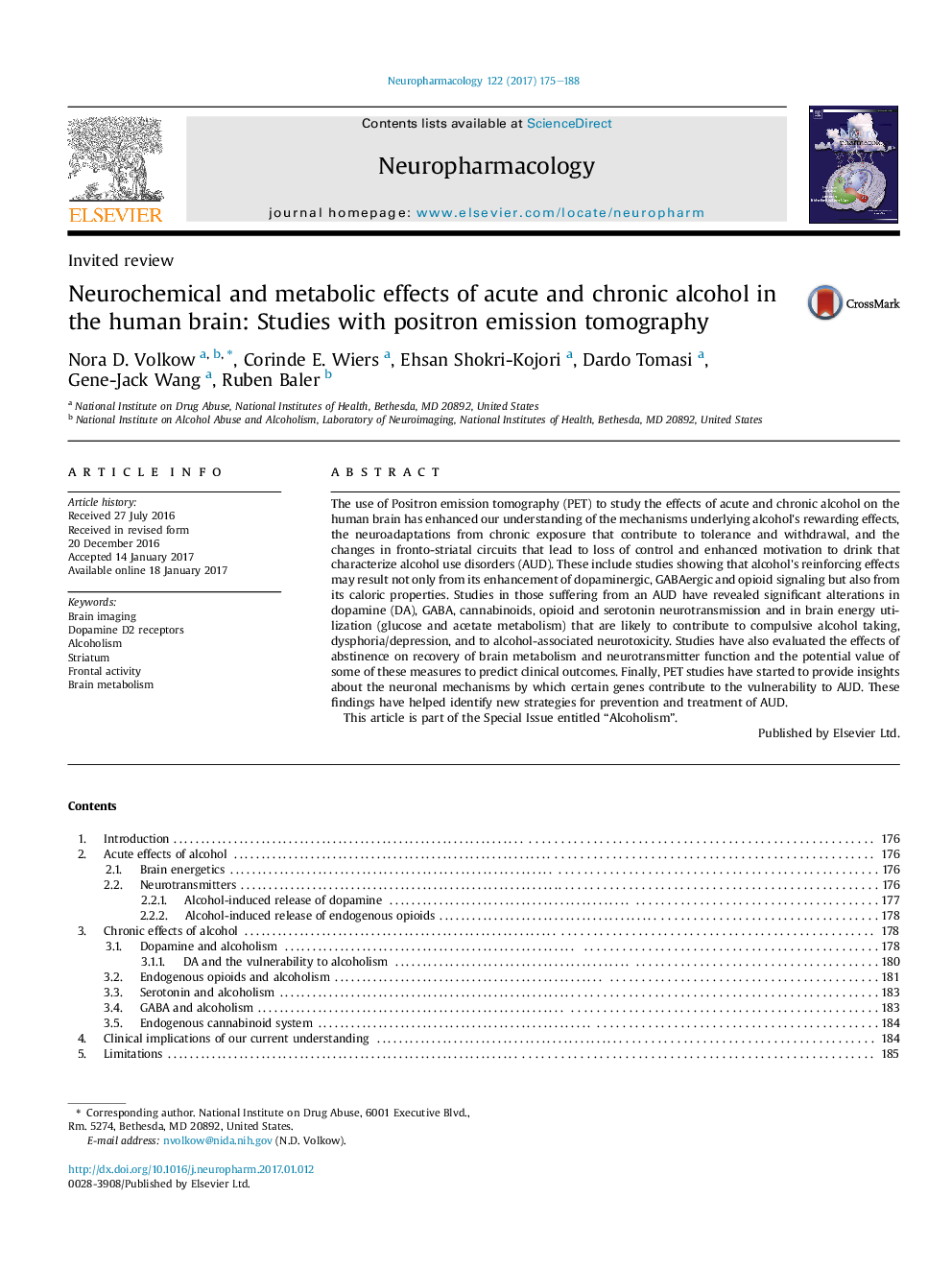| کد مقاله | کد نشریه | سال انتشار | مقاله انگلیسی | نسخه تمام متن |
|---|---|---|---|---|
| 5548855 | 1556595 | 2017 | 14 صفحه PDF | دانلود رایگان |
- Calories in alcohol might contribute to its rewarding effects.
- Alcohol abuse increases reliance on acetate as an energy source in the brain.
- Loss of control in AUD is associated with reduced striatal D2 receptor signaling.
- Enhanced striatal D2 receptor signaling is protective to those vulnerable to AUD.
- Chronic alcohol reduces μ opioid and CB1 receptors and GABAergic signaling in brain.
The use of Positron emission tomography (PET) to study the effects of acute and chronic alcohol on the human brain has enhanced our understanding of the mechanisms underlying alcohol's rewarding effects, the neuroadaptations from chronic exposure that contribute to tolerance and withdrawal, and the changes in fronto-striatal circuits that lead to loss of control and enhanced motivation to drink that characterize alcohol use disorders (AUD). These include studies showing that alcohol's reinforcing effects may result not only from its enhancement of dopaminergic, GABAergic and opioid signaling but also from its caloric properties. Studies in those suffering from an AUD have revealed significant alterations in dopamine (DA), GABA, cannabinoids, opioid and serotonin neurotransmission and in brain energy utilization (glucose and acetate metabolism) that are likely to contribute to compulsive alcohol taking, dysphoria/depression, and to alcohol-associated neurotoxicity. Studies have also evaluated the effects of abstinence on recovery of brain metabolism and neurotransmitter function and the potential value of some of these measures to predict clinical outcomes. Finally, PET studies have started to provide insights about the neuronal mechanisms by which certain genes contribute to the vulnerability to AUD. These findings have helped identify new strategies for prevention and treatment of AUD.This article is part of the Special Issue entitled “Alcoholism”.
Journal: Neuropharmacology - Volume 122, 1 August 2017, Pages 175-188
